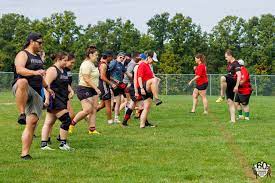In recent years, the sports and exercise industry has made significant strides toward adopting inclusivity. With a growing emphasis on accessibility and equal opportunities, the concept of inclusivity has evolved to include a wide variety of individuals, inviting them to reap the rewards that sports and exercise offer. Those living with a neurological condition, or who have suffered from a neurological injury are no exception. Sports and exercise have become powerful tools for empowerment, enabling individuals to regain their physical and mental well-being. Intensive rehabilitation has played a transformative role in developing inclusivity in sports and exercise.
Creating an Inclusive Environment In Sports And Exercise
Inclusivity in sports and exercise begins with creating an environment that embraces diversity and accommodates individuals with different abilities. Gyms and fitness facilities are continuously implementing accessible infrastructure, such as ramps, elevators, and modified equipment, specifically, those gyms that are tailored to train individuals living with additional neurological and physical challenges. These adjustments ensure that people with varying physical abilities can fully participate in activities, regardless of their limitations.
Tailored Training Programmes
Intensive rehabilitation tends to offer services designed to rehabilitate those living with neurological conditions and those who have suffered a neurological injury. Individuals can gradually regain strength, flexibility, and coordination through tailored training programs. These programs are designed by a multi-disciplinary team and incorporate the use of advanced facilities and pieces of exercise equipment. By adapting exercises to accommodate limitations while maintaining an appropriate level of challenge, individuals can rebuild their strength and reclaim an active lifestyle, therefore furthering how inclusive sports and exercise are becoming.
The Power Of Inclusive Sports And Exercise
Inclusive sports and exercise practices have gained significant recognition and popularity in recent years. From wheelchair basketball to para-cycling, encouraging inclusivity in the sporting industry provides opportunities for athletes to showcase their skills and inspire others.
Inclusive sport and exercise not only have the power to transform individuals physically but also plays a crucial role in improving mental health and wellbeing. Providing accessible sporting facilities and exercise practices can help individuals navigate the ups and downs of their rehabilitation journey, or taking on a new sport, fostering a positive mindset and resilience.
Stories of triumph within inclusive sports and exercise inspire others facing similar challenges, offering hope and motivation. Inclusivity in sports and exercise fosters a culture of acceptance, where everyone, regardless of their physical abilities, can participate and contribute to the collective passion for sports and exercise.
Conclusion
Inclusivity in sports and exercise has emerged as a powerful force for empowerment. Intensive rehabilitation plays a vital role in transforming sports and exercise into an inclusive space, accessible to all individuals despite their needs and wellness. By creating an inclusive environment, by, for example, offering tailored training programs, we can adopt a culture of acceptance and continue to inspire others.
Apart from this, if you are interested to know more about Why Use Park Sports Scoliosis Therapy for Scoliosis? then visit our Sports category.










